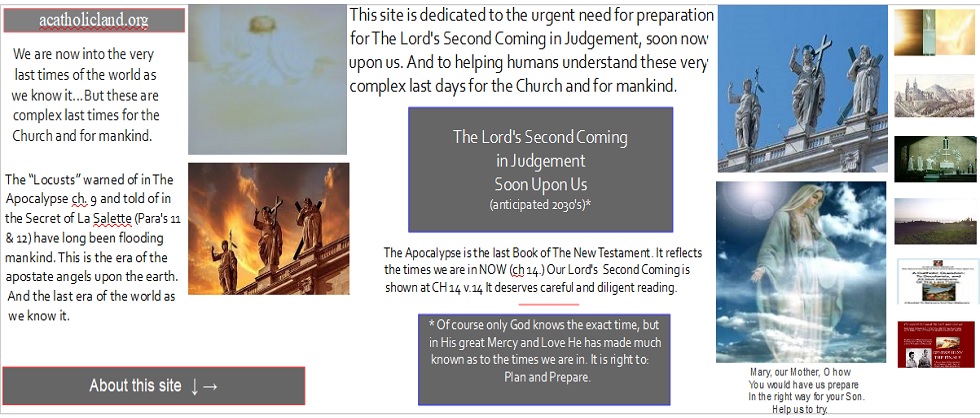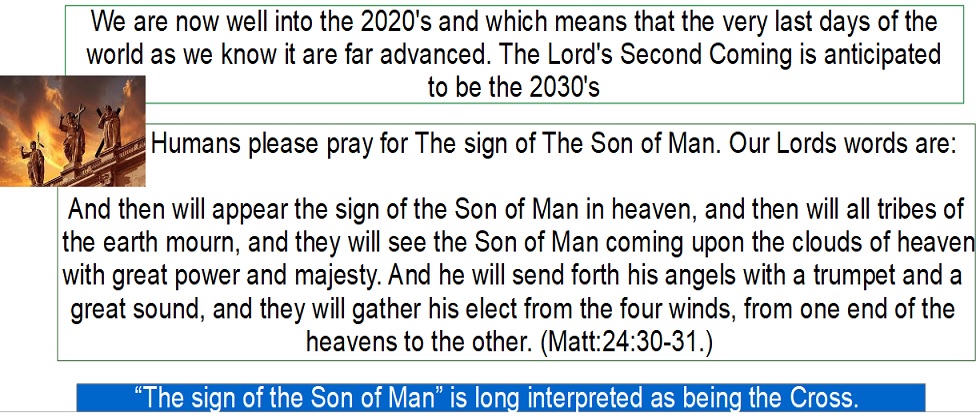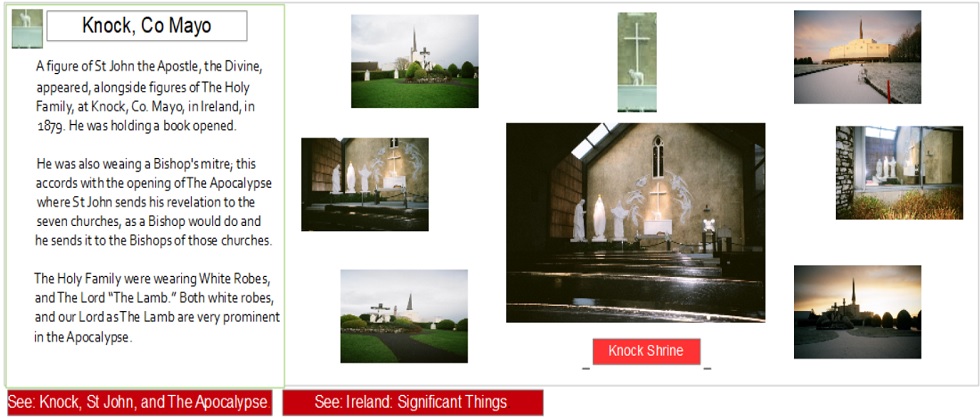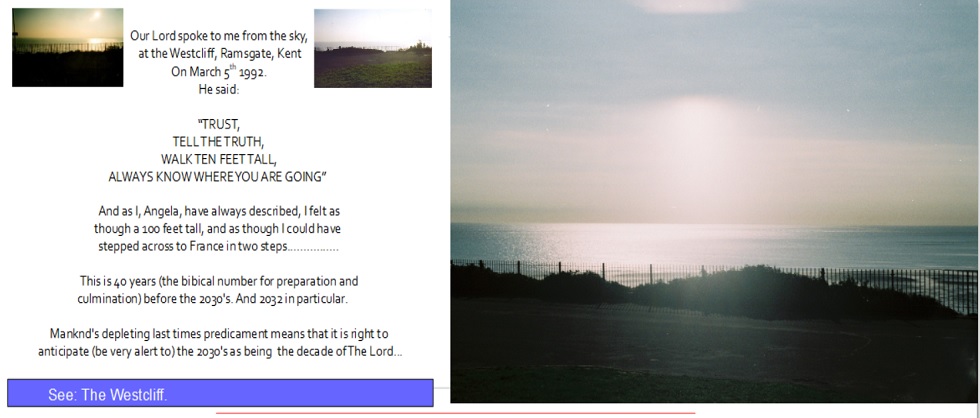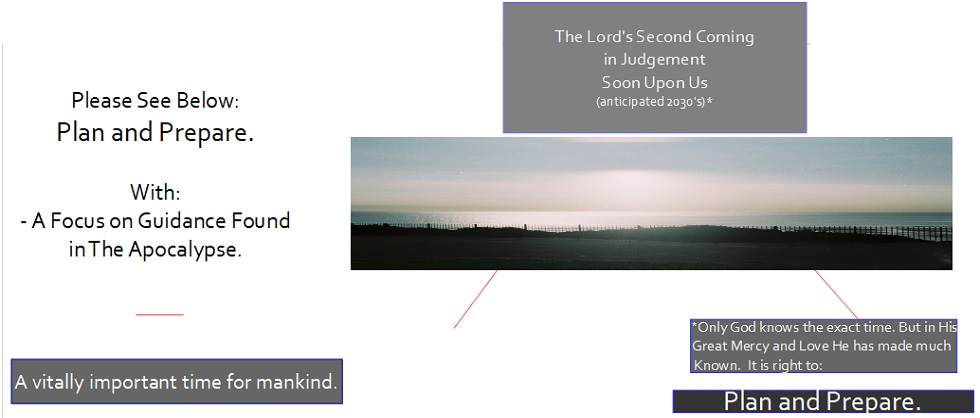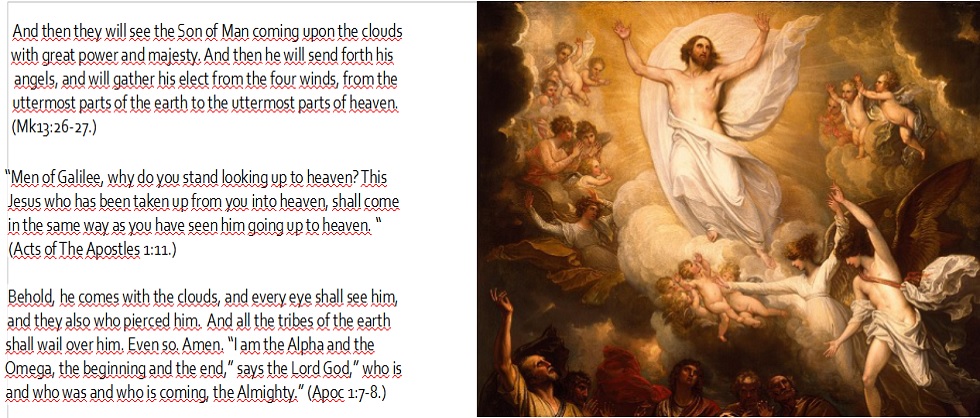Why the Ordinariate is not Catholic.
Understanding why the Ordinariate is not Catholic.
The Ordinariate; Background:
The Ordinariate as successor to the Pastoral Provision.
The Pastoral Provision, what was it?
The Ordinariate in Catholic parishes, replacing Catholic patrimony with Anglican patrimony.
An Anglican (protestant) Use mass can have no place in the Catholic Church.
The Ordinariate is not Catholic, it is Anglican. Catholics on all levels need to avoid the Ordinariate
as should Anglicans who are seeking to convert to Catholicism. The Ordinariate also serves no purpose
in the context of Unity and instead encourages Anglicans and all of those who are outside of the Catholic
Church to remain where they are.
Its background and the ways in which it is affecting the Catholic Church:
The Ordinariate is usually presented as a relatively recent phenomenon. But (some groups of) more
traditional Anglicans seeking a recognition of their traditional Anglicanism by the Catholic Church goes
back a very long way; especially during the nineteenth century. Such requests rejected firmly by The
Church. See, for example, Apostolicae Curae (On The Nullity of Anglican Orders) Pope Leo XIII 1896.
The Ordinariate itself is directly linked to the Pastoral Provision of the 1980's and the doors which
it opened. As with the Ordinariate, the Pastoral Provision had (has) no basis in Catholic doctrine.
Note that as with Vatican II itself (of the era) the Pastoral Provision, as with The Ordinariate, is
a distraction from the Lord's Second Coming in Judgement, and cannot be ruled out, at least for
the most part, as contrived. And should be read of in that context.
During the 1970's concerns about some liberal inroads, and also their concerns about the authority
of women within their communion, saw a number of individual members of the Episcopalian
community in the USA (part of the world-wide Anglican communion) make petition to the Catholic
Church (in America) to the effect that they be allowed to become Catholics whilst keeping
Anglican ('adapted') liturgies etc within their Episcopalian (Anglican) parishes which would also
(allegedly) convert to Catholicism whilst being termed “Anglican Use” parishes. All with much
contradiction but set to fit within a novelty criteria.
The requests were given effect (by John Paul II) in the early 1980's under what was termed a
“Pastoral Provision.” But its terms were written as having a number of safeguards; these being
firstly that it was under the control of the Catholic Diocesan Bishop. He was the “Pastor” of the
“Provision.” The “Provision” being granted to a married Anglican who had (allegedly) already
converted to Catholicism and who would provide a portfolio of information about himself; as to
his suitability for the Catholic priesthood. And the Bishop was also required to compile a portfolio
about him as well. The next step was for the portfolio to be submitted to the Holy See. If approved
a two year training period followed on, culminating in exams which, if passed, would then see
'ordination.' Further safeguards were that a Catholic Bishop could refuse to have a Pastoral Provision
in his diocese. But if it was allowed no more than two Pastoral Provision priests were allowed in the
diocese (excluding retired priests) at any one time. There was never any more than seven Anglican
Use parishes in the US in total.
A further safeguard was that where it was allowed a Pastoral Provision 'ordination' did not (normally)
include the cura animarum:
“Cura animarum” (technically, the exercise of a clerical office involving the
instruction, by sermons and admonitions, and the sanctification through the
sacraments, of the faithful in a determined district, by a person legitimately
appointed for the purpose.)
And so there was not (normally) involvement with the Sacraments of the Church at all. If there was no Anglican
Use parish the work was in chaplaincy or a related field and work (in a non-sacramental capacity)in a Catholic
parish at weekends. However, the Pastoral Provision being a novelty, this was an open door waiting to be acted
upon and, needless to say, gradually the Pastoral Provision (with its Anglicanism) became involved with the
Sacraments of the Catholic Church as well. It meant Pastoral Provision ministering of Anglican liturgies
('adapted') in an Anglican Use parish, but also involvment with the Sacraments of the Catholic Church as well.
In terms of Catholic doctrine and true Catholic teaching this is, at very least, a very serious threat to
the security, and integrity, of the Sacraments of the Catholic Church. And to the identity of the
Catholic Church Herself.
Because the Pastoral Provision was/is a novelty its safeguards are virtually meaningless, as
evidenced in its own developments and even more so in its successor; the Ordinariate. The
Ordinariate terms are that it has its own Ordinary, who has a seat on the Bishop's conference
in the country where that particular Ordinariate is. And it is he who decides who should be a put
forward as a candidate for the Ordinariate ordination. If the candidate is accepted, the ordination
training is in and for the Ordinariate, with a great deal focussed on Anglican Patrimony.
The Ordinariate is also its own diocese, with deaneries and parishes. Its protestant potential is limitless.
Again, and to emphasize, that as with Vatican II itself (of the era) the Ordinariate is a distraction from
the Lord's Second Coming in Judgement, and cannot be ruled out, at least for the most part, as contrived.
And should be read of in that context.
The Ordinariate in Catholic parishes, replacing Catholic patrimony with Anglican patrimony.
The Ordinariate is defined under Anglicanorum Coetibus and its Complementary Norms as being its own diocese, with its own deaneries, and its own parishes. And so a 'separate' diocese of its own. All deeply concerning enough as a protestant structure being closely aligned alongside the Catholic Church.
And how 'separate' is it? Since even more alarming is the Ordinariate infiltrating directly into Catholic parishes, and bringing with it its defining requirement; Anglicanism (protestantism) and with the focus on Anglican patrimony. The Ordinariate's Anglican Use mass and its Anglican liturgy all being from: “liturgical books proper to the Anglican tradition.........” (AC III.)
And this infiltrating is taking place (being given effect) to also include the Ordinariate taking over
Catholic parishes, this via (an interpretation of; including an interpretation by the CDF) as to Ordinariate
powers to be outside of the Ordinariate itself ) and via a provision in the Complementary Norms which states:
"The clerics incardinated in the Ordinariate should be available to assist the Diocese
in which they have a domicile or quasi-domicile, where it is deemed suitable for
the pastoral care of the faithful. In such cases they are subject to the Diocesan Bishop
in respect to that which pertains to the pastoral charge or office they receive." (CN: 9 §1)
This is, firstly, an open door for Anglican patrimony to replace Catholic patrimony; and to thereby impose
an Anglican identity onto a Catholic parish. And, secondly, the Ordinariate, as with the Pastoral Provision,
being a novelty, this was early interpreted to include the “cura animarum” (ministering the Sacraments)
including, as mentioned above, by the CDF, even though (as I understand it) there is no Express provision
for this in either Anglicanorum Coetibus or the Complementary Norms.
An Anglican minister is a layman (Anglican (protestant) layman) according to Canon Law and long held
Catholic teaching.
But we must also look at how the CDF has now decided to define the meaning of the term "Anglican Patrimony."
In 2013 the CDF stated:
"We have thought a lot about what constitutes Anglican Patrimony, particularly as it involves the liturgy, and we
have a working definition. It is to say that "Anglican liturgical patrimony is that which has nourished the Catholic
faith within the Anglican tradition during the time of ecclesiastical separation, and has given rise to this new
desire for full communion." (CDF 2013.)
But Anglican liturgical patrimony does not mean Roman Catholic liturgical patrimony. Anglican liturgical
patrimony means what it says it means: Anglican liturgical patrimony! And this is a serious matter.
Roman Catholicism is NOT high church Anglo-catholicism. And the thirty nine articles do not prompt a
Roman Catholic direction.
Anglican liturgical Patrimony consists of the Thirty-nine articles (with their denial of Transubstantiation which is termed "repugnant to scripture," with their denial of the Mass as a sacrifice, with their denial of the sinlessness of
the Blessed Virgin. Purgatory is not believed in, nor the invocation of the saints. And prayers for the dead are called "blasphemous fables and dangerous deceits." And all with Luther's Justification by Faith alone; that nothing
a believer does affects their salvation. These are most serious errors, recognized as such by the Catholic Church.
And which is precisely why in previous centuries Catholicism and Anglicanism were referred to as being different
religions!
Anglicanism is from the reformation, is Protestantism and is NOT apostolic and cannot be Roman Catholic
The Ordinariate has said, however, that it accepts Church teaching and the Catechism of the Catholic Church.
But here Catholic identity and Vatican II "novelty" identity needs to be looked at closely. Vatican II documents
contain all sorts of vagueness and ambiguities; the reasons why novelty has taken hold. And the post Vatican II
Catechism was actively promoted as being ecumenical when it first appeared. It, in effect, contains Catholic
teaching and ecumenical teaching.
(There is more on Vatican II's approach in The Questions and Answers: see link below)
And if, and as required by Anglicanorum Coetibus III, The Ordinariate's is Anglican liturgy “...proper to the
Anglican tradition” then it is based on the 39 Articles and drawn from the Book of Common prayer, which is
the liturgical outworking of the Articles. It is Anglican liturgy.
However, as concerns the Ordinariate, and their own Anglican liturgy “....proper to the Anglican tradition”
there is a claim that the Church has an authority to change parts of it, to adapt it, and to mix and match it.
But how can there be such authority to do so when the Anglican community, according to long held (and current)
Catholic teaching, is not Apostolic. And it is Protestant (in protest against the Catholic Church) and so there
has never been authority (presiding interactive governing) over it. And it has certainly never been headed
by any Pope, far from it.
There is also the matter as to how much alteration could take place since this would exclude it from being “proper”
to the Anglican tradition (the defining criteria, under Anglicanorum Coetibus, for its inclusion!) And the intent
carried with the Ordinariate is Anglican intent. The Ordinariate has an Anglican (protestant) “animus” identity.
But even if there was such a thing as a legitimate “mixing and matching” it would mean, simultaneously,
a protestantizing of Catholic liturgy. And all of this part of the focus of concern over the impending
“common rite mass.” And all of this is happening at the same time as our beautiful Catholic liturgies and
devotions have been so undermined since Vatican II.
And two things should be kept in mind. Firstly, the Anglican community terms itself Anglo-Catholic not because
it is English Roman Catholic, but because it believes that it itself is the Catholic church (reformed.)
And there can be no such thing as a Catholic organization from the Anglican tradition because the Anglican community was founded at the time of the reformation, and is protestant. And, secondly, that certainly our brave recusant martyrs, and all recusant Catholics who suffered three hundred years of often very severe persecution in Britain and in Ireland for their Catholic Faith did not think that Anglican liturgy was a development of the Roman rite! Far from it. And nor, as is clear, did the Anglicans think this themselves.
And these are very difficult times for Catholic parishes, being aligned, by way of a Novelty, with a protestant
structure, its potential and its template.
And the bigger picture is that Ordinariate parishes (which in a number of cases have been formally given over to
the Ordinariate) are also within the Ordinariate infrastructure (diocese.) Consider, for example, the cross over
point between a Catholic Deanery and an Ordinariate Deanery. And the even bigger picture is as to how this all
relates to the warning in the Secret of La Salette as to the Faith being abolished “little by little”...(Secret 11)
There are five separate but overlapping ways in which the Ordinariate is infiltrating into Catholic
parishes. It is also at an interaction stage as Catholic parishes can be asked to include, on request
from a member(s)of the Ordinariate, a saying of the Ordinariate's Anglican Use liturgy.
The ways it is inflitraing into Catholic parishes is as follows:
There is the Ordinariate using a Catholic parish as a host and/or as its base. Second is where the
Ordinariate have their own premises/which was not previously a Catholic church (rare.) Third is
where the Ordinariate is taking over an existing Catholic parish. Four is where the Ordinariate is
appointed directly (by the Catholic Diocese, and by the Ordinariate.) For both three and four this
might be accompanied by the Catholic parish being formally given over to the Ordinariate and
which then becomes an “Ordinariate “ parish. Five is where the Ordinariate group exists within
a Catholic parish, but which is visited by the Ordinariate.
See concerns about the Ordinariate (in context in the Questions and Answers on the Home Page.)
Specifically as concerning the Ordinariate, these begin at Question, 56.)
The topics include:
A focus on the Ordinariate's powers, structures and potential.
Please read all in the broader context in The Questions and Answers.
This era is the immediate build up to Our Lord's Second Coming in Judgement. These are short general questions/comments/answers, which...
see also:
When a Catholic in a Catholic church on a Sunday morning has to enquire as to what service is in the process of being said; that indicates...
One True Church. The Roman Catholic Church is the one true Church. Our Lord's Word's to Peter: "And I say to thee, thou art...
There are worrying recent developments seeking to restrict the use of the Tridentine Mass. The Congregation of Divine Worship, in its...
Doctrine v Novelty: The Difference between Doctrine and Novelty. Doctrine: Catholic doctrine; the Deposit of Faith, is grounded in...
There is a direct correlation between the warning in The Secret of La Salette and what is happening in the Church NOW.
